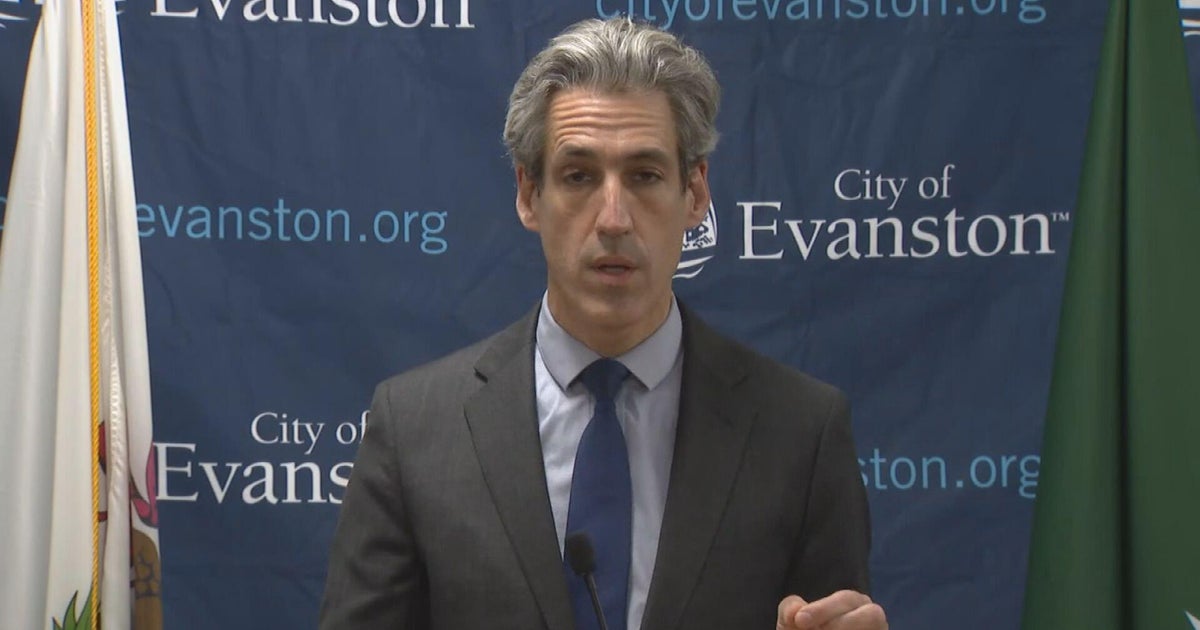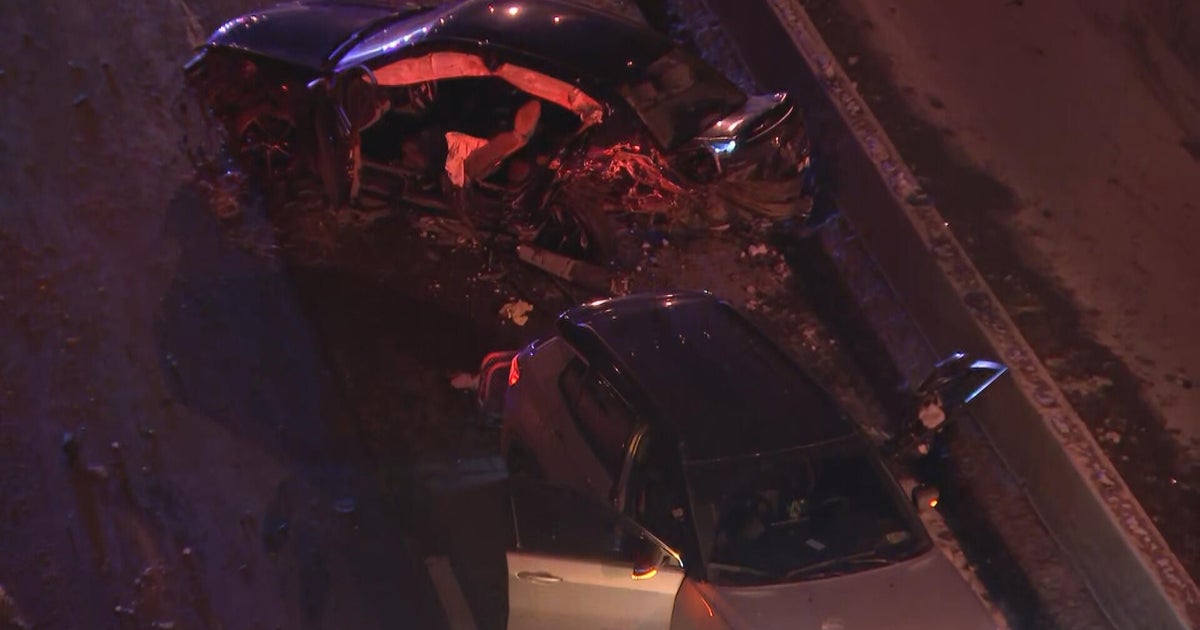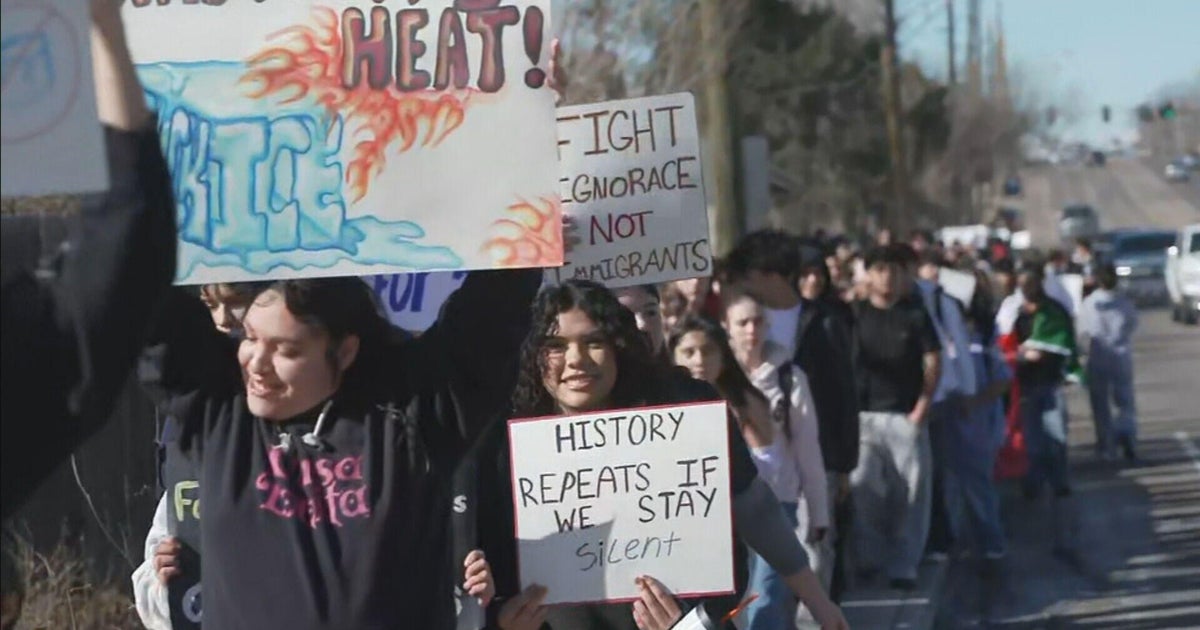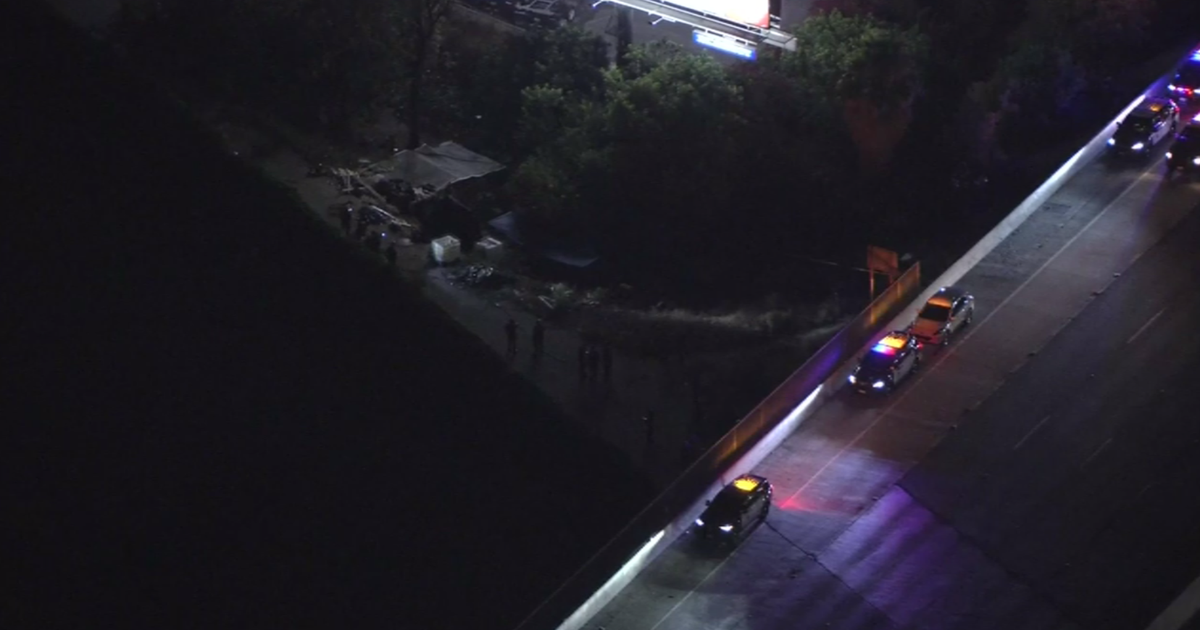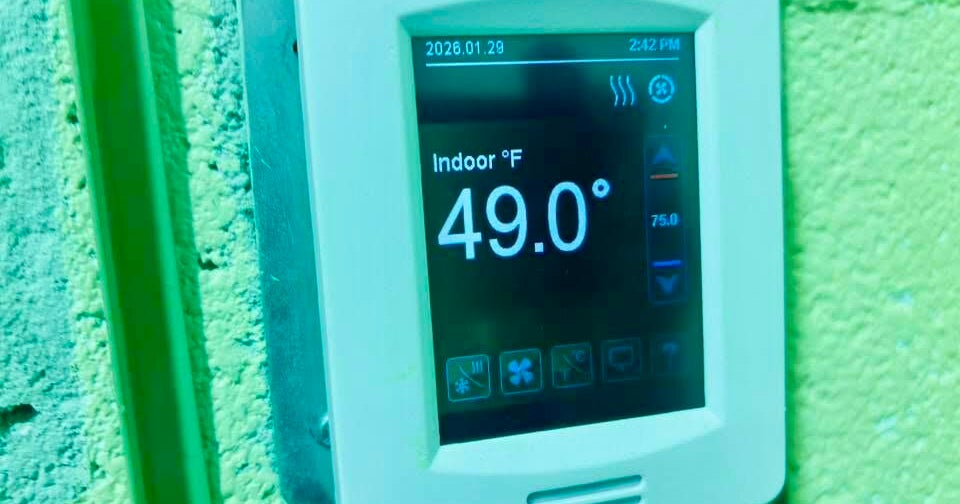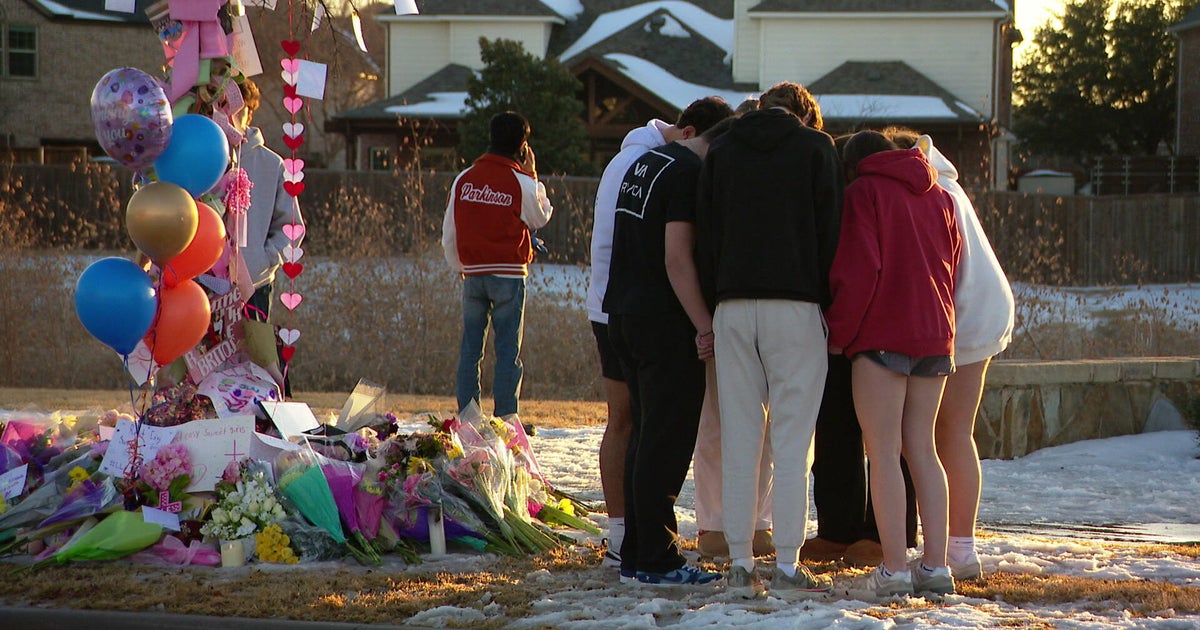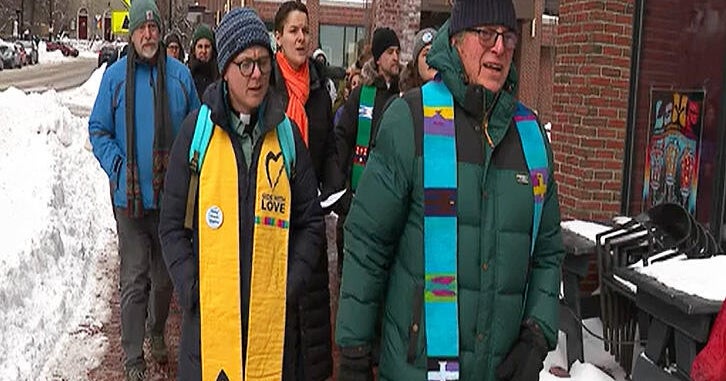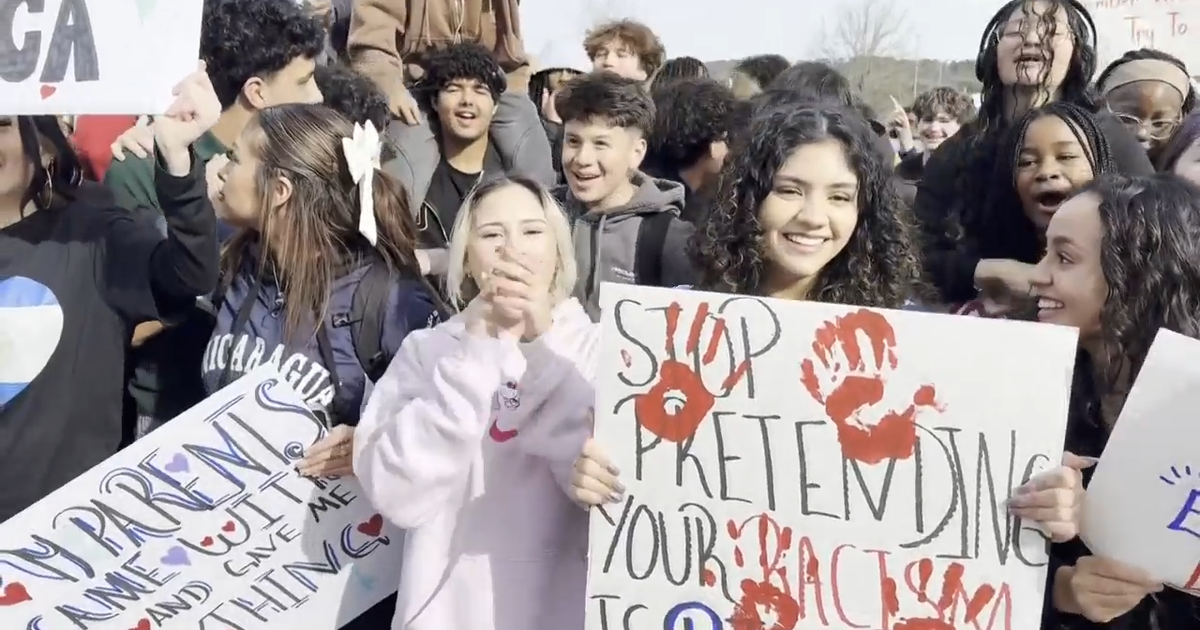Police dismantle pro-Palestinian protest encampment on Penn's campus; 33 cited
PHILADELPHIA (CBS) - Police early Friday morning dismantled the pro-Palestinian protest encampment on the University of Pennsylvania's campus in Philadelphia.
The Philadelphia Police Department and Penn police moved in to clear the encampment around 5:30 a.m. as it entered its 16th day on College Green. Police installed metal fencing and barricades to prevent another encampment from erecting.
A Penn spokesperson said 33 people were arrested and released after being issued civil citations for trespassing. The spokesperson added the protesters were "offered the opportunity to voluntarily leave and avoid a citation."
Nine of the 33 people cited Friday morning were confirmed Penn students, the spokesperson told CBS News Philadelphia in an update.
"Those who chose to stay did so knowing that they would be arrested and removed," the spokesperson said.
Penn's Division of Public Safety issued a warning two minutes before the Philadelphia police, in riot gear, and university police began clearing the encampment.
"Penn Police warns those in the College Green Encampment to disperse immediately," Penn Public Safety posted on X. "If you do not take your belongings and leave within two minutes, you will be considered a defiant trespasser and will be arrested. If you leave now, you will not be arrested."
PPD worked with Penn police for three days this week to provide civil disorder training, a spokesperson for Mayor Cherelle Parker said.
Philadelphia District Attorney Larry Krasner said his office doesn't prosecute the code violation notices the protesters received.
"That is essentially a civil violation, it's not actually a criminal charge," Krasner said. "It's not something that we do. They are essentially in the nature of a civic proceeding. They create no criminal record."
Krasner said the citations could result in fines or other consequences.
In an email to the Penn community, interim President J. Larry Jameson said College Green will be restricted until further notice. He said anyone seeking to enter College Green will need to show a valid PennCard.
In a joint statement, City Councilmember Jamie Gauthier and state Rep. Rick Krajewski called the police's "militarized" dismantling of the encampment "an inappropriate and deeply concerning response."
"We are disappointed that riot police dismantled a peaceful student-led protest this morning. From the start, we advocated for a negotiated, nonviolent resolution," the statement said. "Sending a large militarized police force against students and faculty is an inappropriate and deeply concerning response."
Gauthier and Krajewski urged the university to avoid any further escalation.
Penn professor Tulia Falleti was on College Green Friday morning and expressed concern over how the encampment's dismantling was handled.
"I love this university. I love our students," Falleti said. "I can no longer work collaboratively with an administration that has arrested its own students."
Police moved in on the encampment less than 24 hours after Pennsylvania Gov. Josh Shapiro urged the university to disband the encampment "to restore order and safety on campus." Across the country, police broke up several other encampments on college campuses Friday.
A spokesperson from Shapiro's office said Friday in a statement, "Unfortunately, the situation at Penn reached an untenable point — and as the university stated publicly, the encampment was in violation of university policy, campus was being disrupted and threatening, discriminatory speech and behavior were increasing."
The statement continued, "After Penn's weeks-long efforts to engage protestors were met with further escalation, today, the University of Pennsylvania's leadership made the right decision to dismantle the encampment."
Penn began punishing students for their roles in the protest encampment. Twelve student protesters face disciplinary actions, including six students being placed on mandatory/temporary leave.
Protesters set up the encampment over the Israel-Hamas war. Protesters demanded Penn to disclose its investments, cut ties with businesses supporting Israel and protect the speech of pro-Palestinian student protesters.
Jameson said Penn officials and members of the encampment have met on "multiple occasions," but couldn't find common ground.
"We made clear that their proposals were not possible," Jameson wrote Friday, "including their demands that participating students and faculty receive amnesty without proceeding through our due process for conduct and for divestment from entities engaged with Israel."
"Penn remains unequivocally opposed to divestment," the interim president added, "and it is unlawful for institutions receiving funding from the Commonwealth of Pennsylvania."
Last week, several faculty members, students and alumni petitioned Penn's interim president, asking for the encampment's removal. Benjamin Abella, who works at Penn Medicine, was one of the petition's signees.
On Friday, Abella said the police removal of the encampment was "inevitable and correct."
"The removal of the encampment was a necessary action for student safety. For university business to go forward," Abella said. "I think the students are misinterpreting the police action. They were given enormous opportunities to protest in a correct fashion that didn't violate Penn policies. They were given numerous warnings that what they were doing was criminal trespassing and disrupting university business."
Penn community reacts to encampment being cleared
"It's something that's been weighing on me for the past couple weeks," Ezra Troy said.
Troy walked down Locust Walk Friday to see the former site of the pro-Palestinian encampment now gated off by police. Troy, a Jewish student set to graduate in 10 days, described his last few weeks on campus.
"It's been a little bit scary. I've seen some videos of some of my friends being harassed near the encampment. I've walked by, I've been scared when I walked by," Troy said.
On Friday morning, Penn and Philadelphia police dismantled the encampment ending a more-than two-week standoff. Nearly three dozen people were arrested and ticketed — a move Troy believes was necessary.
"If you're not going to arrest people, they're not going to leave," Troy said. "If you're just going to warn them that they're trespassing, nobody cares about that. You need to really take action."
"I think the administration could've maybe handed this in a better way instead of clearing it out, kinda coming to a solution to kind of end this type of situation in a peaceful way," said Issa Kabeer, a former Penn student and current chaplain at Penn Hospital.
He brings a unique perspective to the protests — half of his family is Muslim and the other half is Jewish. And while he may not agree with how Penn ended the encampment, he also didn't see the protests as particularly effective.
"Boycott, divestment, sanctioning don't work. I understand where they're coming from, I understand what they mean by it," Kabeer said. "But I don't think it gets us to where we want to get to, which is having a peaceful solution."
Kabeer hopes the university can bring both sides together, open dialogue and move forward that way. But Troy says many Jewish students have felt let down by the school.
"With all the protests on campus and the university not necessarily standing up for the students, has really made a lot of us feel isolated. But this I think is a good first step," Troy said.
